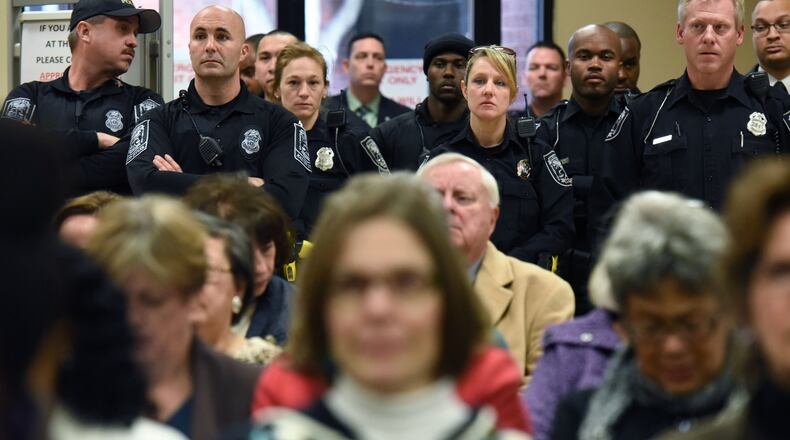More than 3,000 DeKalb government employees will receive 4 percent pay raises after the County Commission approved a $1.38 billion midyear budget Tuesday.
Besides the pay increases, the budget also includes new spending to extend library hours, upgrade water and sewer systems and more.
The county's property tax rate will remain unchanged, though many residents are facing higher tax bills because assessed property values have increased.
The DeKalb Board of Commissioners voted 5-1 to pass the budget, with Nancy Jester opposed.
Pay raises
DeKalb employees were underpaid relative to some of their peers in the metro Atlanta area, according to a pay study conducted for the county government.
The 4 percent raises approved Tuesday cover more than 3,000 employees, including sheriff's deputies, clerks, librarians and prosecutors. The DeKalb Commission previously approved similar raises in February for about 2,800 police, fire, 911, sanitation and watershed employees.
The raises will cost $17.1 million annually and $11.4 million to cover May through December of this year. The county is also creating new pay ranges, and employees earning less than the minimum for their jobs will have their pay increased.
Library hours
DeKalb public libraries have been operating with reduced hours for more than five years. When new branches opened and others expanded, the county didn’t allocate money to hire more staff.
The 2016 budget includes $491,972 in spending to hire 36 full-time library employees during the last three months of the year. Over a full year, the additional staffing cost reaches about $2 million.
As a result, night and weekend hours may be restored at many libraries across the county. The library system’s Board of Trustees will determine operating hours.
Water upgrades
The largest spending increase in the budget is $48 million for water and sewer construction, added to the $101 million adopted earlier in the year.
These infrastructure upgrades are part of the county’s long-term $1.35 billion capital improvement project to reduce sewage spills and increase capacity.
The bottom line
In all, the mid-year budget spends about $57 million, or 4.4 percent, more than the budget passed in February. The largest part of that spending is for water and sewer infrastructure, which is paid through customers’ water bills.
Spending from tax funds is increasing by about $6 million, or 1 percent of the $606 million dedicated for general government operations.
Other new spending includes $1.7 million for fire alarm upgrades at the county jail, $802,000 for drainage and paving and $405,597 for park maintenance.
About the Author
Keep Reading
The Latest
Featured





